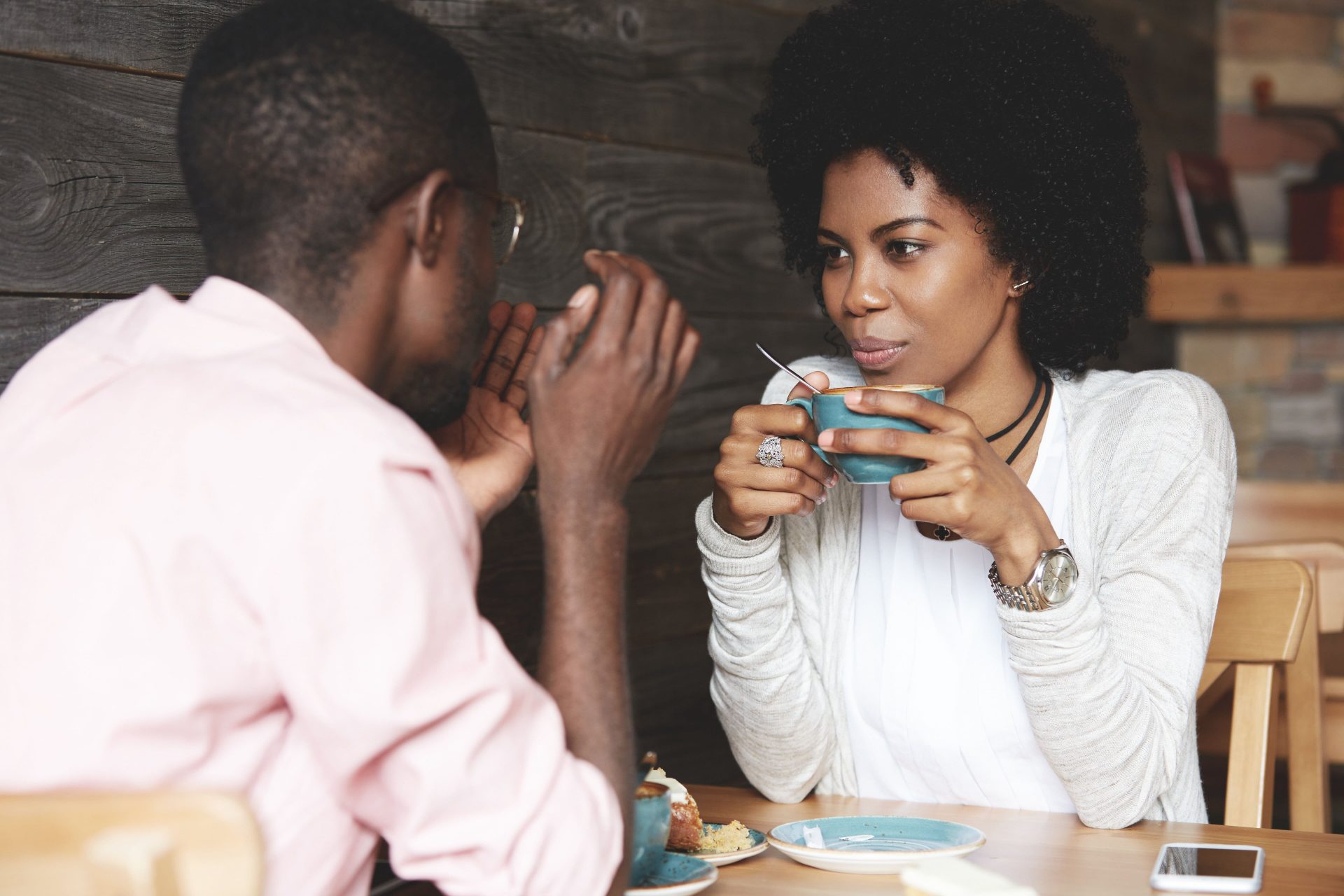
If you bring up love at first sight, inevitably everyone and their dog is gonna have a different opinion.
Some swear they’ve felt it, and the skeptics have some really good questions for them. Is it real? How would it even work? If it is real, how could it be the same as “true” love?
Well, after you read my story and do the 10 second thought experiment, hopefully you’ll have the answers.
Love at First Sight is Possible Because of Subjective Reality
Like most of you, my family moved a few times when I was growing up. This meant switching schools, and in grade 5 I experienced my first move that took me away from a love interest. Before I left, her and I made a pact that if I came back when we were older we would date.
I thought about it when I saw things that reminded me of my old school, or when I visited my old town and ran into friends from back in the day. I lived about 2,000 miles away, so I didn’t visit much. One summer I was in the old ‘hood and I ran into the girl in question.
I was pretty conflicted about approaching her. It’d been like 10 years. Was 10 years too long for a pact? Was it just something dumb we said as kids? Nah… 10 years is perfect timing for a pact. If it was a year or two that would just be a regular plan and defeat the whole point of making pacts in the first place.
Being 18 or 19 at this point, I had changed a lot but I was sure she’d remember. In my mind, it played out with her being thrilled to see me and us going somewhere and catching up. The reality was a bit different.

A George Costanza Moment
When I approached her, she gave me that confused, I-don’t-remember-you look.
Not yet ready to throw in the towel, I attributed this to me being older and extremely good looking. I did the classic it’s-me-don’t-you-remember pose that everyone does for some reason.
You know the one – sort of smiling with your eyebrows raised and arms out with a look of expectation, as if this will somehow jog their memory.
I’ll never forget her response. “Ohhh yeah, right… weren’t you that kid that sort of liked wrestling?”
I seriously doubt she could’ve said a more deflating sentence. That’s about as opposite of our pact as you can get. I mean, yeah my mom took me to Toronto to see WWF Raw in ’97, but to be vaguely remembered for that?
The point of this story is that our feelings of attraction and intimacy are based on perception, not reality. This defeats the common objection that feelings of connection, or even love, upon meeting someone “aren’t real”.
Whether you develop an understanding of someone over time, or (falsely) believe you possess that understanding instantly, the experience is the same. You could just as easily argue that loving someone who constantly lies about who they are means your love for them isn’t “real”.
This point of contention aside, how could you possibly believe you know enough about someone to love them on sight?
The Psychology of Love at First Sight
Alright, so people who experience love at first sight have a couple psychological traits in common. One, they’re raised on boy-meets-girl fairytale stories, or at least believe in the concept of love involving some element of destiny or fate. We all rely on our beliefs to explain the world around us, and the way we filter the world and interpret things is shaped by our beliefs.
Whether or not your beliefs are accurate is irrelevant – your beliefs are accurate to you so your brain will serve up emotions corresponding to those beliefs. Your emotions shape the way you act, and the end result is your brain basically manipulates you into acting in accordance with your beliefs without stopping to question whether or not they make sense.
The second thing you need to know in order to understand love at first sight is heuristics. I’ll spare you the boring explanation. Instead, let’s do that experiment I talked about:
I’m going to describe someone, and I want you to imagine what they look like. Imagine someone really smart, they’re the top performer in the chess club, the captain of the debate team, and they get straight A’s. Hold the image in your head and scroll down.
I asked 10 people these same questions.
There were only two types of people described.
Does the person you imagined look like either of these two?
Scroll down.
First off, I’ll acknowledge that the results you get from your friends might be totally different. That’s not the point of this thought experiment.
The point is you are able to imagine very detailed physical descriptions of people without being given any physical traits.
I didn’t mention gender, height, weight, appearance, ethnicity, hair colour, eye colour, clothing, yet people are able to answer these questions. And not only answer them, but answer them with confidence.
Not a single person said “I can’t tell you what they look like, you didn’t describe them physically.”
This is called the availability heuristic. It’s the tendency for us to accept whatever comes to mind first without stopping to consider whether or not it’s true. If one of the people surveyed came across a guy similar to the photo, they would assume a shitload of information about him, even though it might be totally inaccurate.
It’s not just these people either. We all do this, all the time. Every time you look at someone you have a general idea of what they’re like, if you’d get along, and so on.
This is the basic process behind love at first sight. Take someone who has ingrained ideas about what their ideal romantic partner would be like, who whole-heartedly believes their first impressions of people are totally accurate, and put a person representing their ideal in front of them.
Another factor is the simple belief in love at first sight, caused by a phenomenon known as confirmation bias. You see what you want to see, and selectively ignore things that might challenge your beliefs. The less someone relies on an evidence based interpretation of the world, the more likely they are to believe in hokey shit like astrology, the law of attraction, or that they know and intimately love someone on first sight.
Unlike the former two, however, emotions like love are based entirely upon belief. Think about it – if I show you a picture of a guy and tell you he cheated on his wife and abandoned his kids, how would you feel? What about if I told you he’s a swell dude and an awesome father to his loving family? Obviously, who he actually is doesn’t change, but your emotions do.
In that sense, love at first sight is absolutely real, and the feeling is identical to the love you feel from getting to know someone over a long period of time. Whether or not you actually know someone doesn’t change the emotion you experience.
What do you think? Are you convinced, or do you think this is all psychobabble bullshit? Let me know what you think, especially if you’ve experienced love at first sight yourself!











